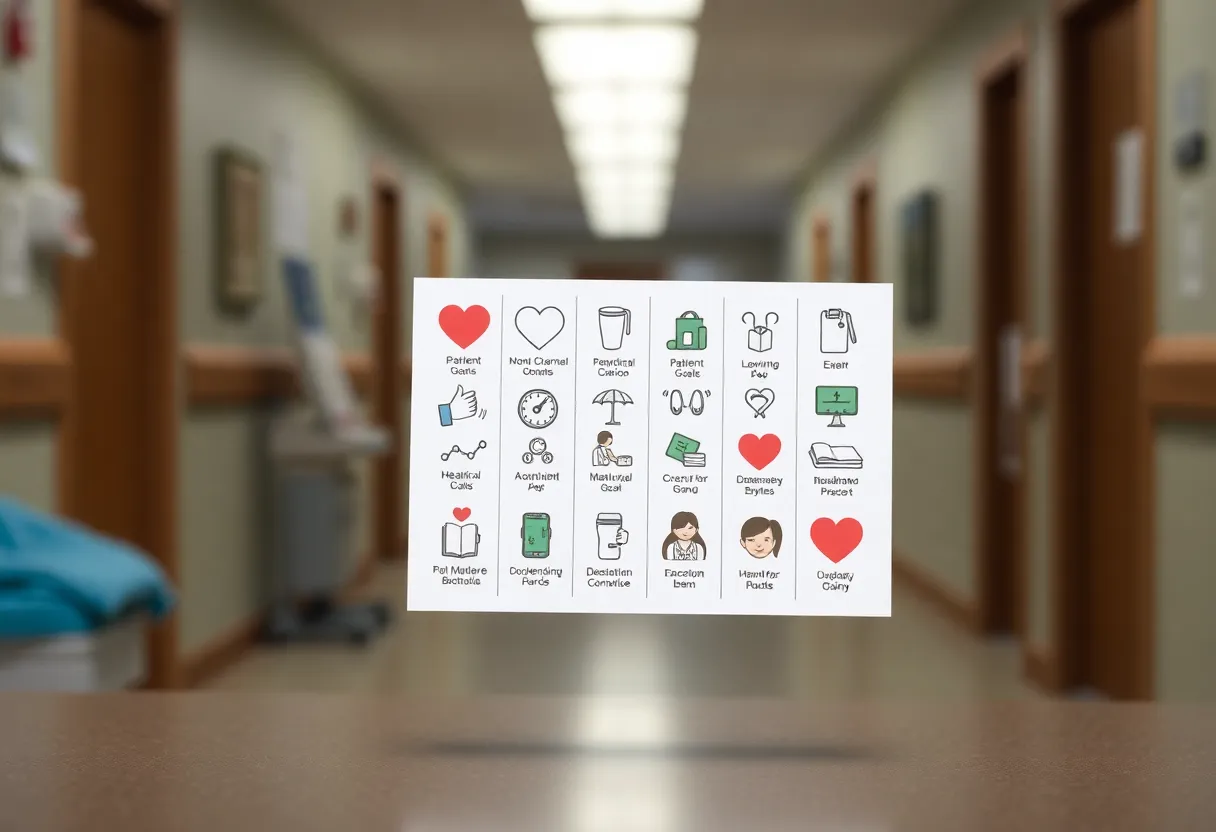News Summary
Researchers have developed the ‘About Me’ Care Card to improve conversations about cognitive impairment. This tool encourages personalized discussions between patients and healthcare providers, addressing emotional needs and social care. A feasibility study showed promising outcomes, but some patients found it difficult to use. As cognitive decline affects many seniors, integrating this tool into primary care could enhance patient support.
Understanding Cognitive Care: A New Tool for Patients
Have you ever felt lost when discussing concerns of cognitive impairment? It’s tricky territory. Traditional cognitive impairment tools have mainly focused on clinical diagnoses. But here’s some good news: a group of researchers has created a new tool called the “About Me” Care Card, designed to enhance conversations about cognitive impairment in a way that feels personal and supportive.
Shifting the Focus
The existing tools just weren’t cutting it. They tended to overlook the personal fears, goals, and social needs of patients facing cognitive challenges. This is where the “About Me” Care Card comes in. Developed through principles of shared decision-making, the Care Card is designed to encourage more personalized interactions between patients and healthcare providers.
Researchers embarked on a feasibility study that embraced a community and user-centered design approach to see how well this Care Card would work in real-life scenarios. An initial environmental scan revealed several gaps in cognitive care tools currently available, prompting the need for an innovative solution.
Gathering Input from Many Voices
A global steering committee brought together various stakeholders, including healthcare professionals, patient advocacy groups, caregivers, and individuals dealing with dementia, to weigh in on the Care Card. This collaborative effort ensured the tool was fine-tuned to meet the actual needs of those it is intended for.
During a pilot program, fourteen clinicians across seven institutions utilized the Care Card in person or over the phone with patients. Observations from this pilot noted several positive outcomes:
- It created opportunities for clinicians to discover what really matters to patients.
- The Care Card opened the door for meaningful conversations around personalized care.
- It facilitated discussions about crucial social care needs.
- Family dynamics improved as conversations became less emotionally charged.
Real Feedback from Patients
Once the pilot was completed, post-use surveys were distributed to gather feedback. The majority of patients found the Care Card to be helpful and beneficial during their discussions about cognitive impairment. In fact, about 65% recommended it for individuals over the age of 65.
However, not everything was smooth sailing. Only 41% of patients reported it being easy to use, and some individuals with advanced cognitive challenges needed some assistance in navigating it. Additionally, just 32% felt a concrete plan was created that truly addressed their priorities.
Impacts of Cognitive Decline
The introduction of the “About Me” Care Card into primary care workflows could have significant implications. With cognitive decline impacting not just emotional well-being but also financial decision-making, it’s crucial for healthcare providers to be able to identify patient concerns early.
With over 90% of Alzheimer’s cases presenting after the age of 65, the issue affects over 11% of retirement-age Americans. Alarmingly, the prevalence of Alzheimer’s disease and related disorders is expected to double by 2050. Furthermore, women face double the lifetime risk compared to men, and racial disparities are noteworthy, with Black and Hispanic populations experiencing higher prevalence rates.
Financial Health is Part of Cognitive Health
Research shows that early-stage cognitive impairment can lead directly to issues with financial decision-making. A notable study revealed that individuals began to see a dips in credit outcomes even before an official diagnosis of Alzheimer’s or related disorders. For instance, in the five years leading up to the diagnosis, credit scores tended to drop, and late payments increased significantly—21% more likely for credit cards and 11% for mortgages in the two years leading up to the diagnosis.
This means that the financial consequences—such as late fees and diminished access to credit—become more pronounced after diagnosis, particularly for women. Identifying at-risk individuals through credit data might pave the way for earlier diagnosis and intervention. Early diagnosis can significantly aid in managing the progression of cognitive decline, all while considering the vital connection between financial well-being and cognitive health for older adults.
Looking Forward
As we continue to explore the challenges associated with cognitive impairment, the introduction of tools like the “About Me” Care Card signals a positive shift towards a more comprehensive approach to patient care. Both cognitive health and financial health should go hand in hand, ensuring that seniors are not just understood but also supported in every facet of their lives.
Deeper Dive: News & Info About This Topic
HERE Resources
How Generative AI is Changing the Game for Advertisers
Additional Resources
- McKnight’s: Care Cards Get Cognitive Health Conversation Going
- Wikipedia: Cognitive Impairment
- Mirage News: New About Me Tool Enhances Care Planning
- Google Search: Cognitive Health
- Psychiatrist: Cognitive Decline Threatens Financial Stability of Older Americans
- Encyclopedia Britannica: Dementia
- Healthline: Memory Game Resources
- Google News: Memory Exercises
- Everyday Health: Brain Exercises for Memory
- Medical News Today: Cognitive Impairment Doubled Since 2009







